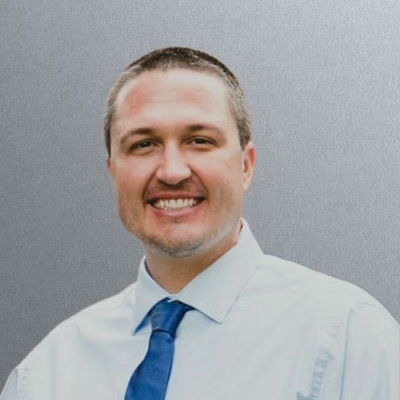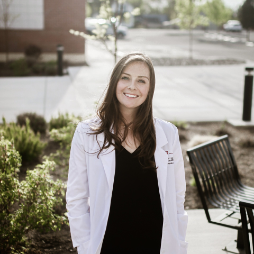St. Charles is committed to improving the health and well-being of the community it serves, starting with its own caregivers, providers and their families. Engage for Health is a comprehensive well-being program designed to meet caregivers, providers and family members where they are in their health and wellness journey. Through a variety of free resources and services, there is something for everyone. Resources include:
- Behavioral health support including counseling services, spiritual care and crisis response
- Fitness centers on hospital campuses
- Mindfulness resources
- Secure wellness platform providing resources, activities, tracking tools and social groups
- And much more
For more information about the Engage for Health wellness program, please visit engageformyhealth.org or contact Wellness Program Manager, Jennifer Schostalo Hall, at [email protected] or 541-706-5950.
*Must be a caregiver or spouse of a caregiver enrolled under a St. Charles health plan
Behavioral Health Support Services
St. Charles offers a wide variety of emotional wellness and wellbeing services to caregivers and their dependents, including:
- Critical Incident Stress Management (CISM)
- Caregiver behavioral health support helpline
- Outpatient Behavioral Health Caregiver Assistance Program (CAP)
- Spiritual Care
- Doctor on Demand virtual behavioral health visits
- County Crisis Line Resources
Click HERE to assess any of these services.
Caregiver Assistance Program
The Caregiver Assistance Program (CAP) is a FREE and CONFIDENTIAL benefit that can assist
you and your eligible family members with any personal problems, large or small. See a summary of services.
Eye Movement Desensitization Reprocessing (EDMR) and Group Traumatic Event Protocol (GTEP)
Upon request, Central Oregon clinicians trained in EMDR offer free Group Traumatic Event Protocol to health care professionals who have/are experiencing distress related to Covid-19. GTEP is conducted in a group context, however it is an individualized process. Both EMDR and GTEP are evidence-based trauma interventions that are used worldwide to address recent or ongoing trauma or stress. It is a group process and an alternative to Crisis Incident Stress Debriefs (CISD). With CISD, the individuals can process stressors or trauma without sharing the stressors/trauma with the group. If any participants feels they need additional support, individual assistance can be arranged. Contact Molly Wells Darling at 541-706-5865 or [email protected]
Fitness Centers
On-site fitness centers are located at all four hospital campuses hosting a myriad of strength, cardio and stretching equipment.
St. Charles Bend
- The caregiver fitness room is located on the lower level, behind the staffing office.
- The caregiver fitness room is available to use 24 hours per day, seven days per week.
St. Charles Madras
- The caregiver fitness center is in the basement of the St. Charles Family Care Clinic in Madras. Caregivers may access the fitness center at the northeast door of the building. This ensures patient care is not disturbed.
- Available for use 24 hours per day, seven days per week.
- Remember this location is below a patient care area, so please be respectful and keep noise to a minimum.
St. Charles Prineville
- The caregiver fitness center is in the Rehab Department.
- Specialized pieces of equipment that are not available to caregivers will be clearly marked “patients only.”
- Caregivers have access to the fitness center from 6 p.m. to 7:30 a.m. Monday through Friday. Weekend access is permitted, however, please be sensitive to patient needs.
- Use personal headphones for any music or TV to respect other people in the room.
St. Charles Redmond
- The caregiver fitness room is in the Annex building.
- Available for use 24 hours per day, seven days per week.
The use of personal headphones for any music or TV is required in all Fitness Center locations.
Dietitian Counseling Services and Body Composition Analysis
Nutrition counseling and meal planning services are available through St. Charles Nutrition and Diabetes Services. Check with your health plan to verify your coverage available for these services. Please note, body composition scales are currently available at the Bend and Redmond campuses (Madras and Prineville coming soon). To schedule an appointment, contact [email protected].
HeartMath-Resilience Advantage
Created in 1991, HeartMath has researched and refined a set of unique tools and proprietary technology designed to boost resilience, performance, and health while dramatically reducing stress. HeartMath is a workshop for caregivers and health care professionals to learn how to reduce stress and improve the quality of life. The Resilience Advantage workshop incorporates advanced scientific research in resilience, coherence and intuition with easy-to-learn self-regulation tools and technology. The program engages the natural intelligence of your heart to reduce the impact of stress and improve your health, performance, and happiness.
Visit Workday Learning to register or learn more.
Mind-Body Groups
Mind-Body Skills Groups teach participants how to integrate mind-body skills into one’s life in a real and practical way. Mind-body approaches use the conscious mind to directly affect the workings of the brain and the rest of the body to create beneficial changes in many of the body’s physiologic responses. Our initial fight-or-flight responses to trauma and stress are healthy and designed to preserve us. However, when prolonged, induce biological damage and psychological consequences. Mind-body skills are the antidotes to the fight-or-flight, stress, and freeze responses. They reestablish broken brain connections and promote the healthy integration of thoughts and feelings. Skills include quiet and expressive meditations such as guided imagery, autogenic training and biofeedback, breath work, movement, and self-expression. Benefits gained from these groups include increased self-confidence and self-awareness, improved self-perception, enhanced immune system function, improved ability to cope with pain, fatigue and other symptoms, and improved ability to recognize and handle stress on this model.
Mind-Body groups are generally limited to six participants and consist of 90-minute workshops once a week for eight weeks.
Contact Lin Becker to discuss enrollment at [email protected].
Mindfulness Headspace and More
All caregivers and up to four family or friends have a free subscription to Headspace. Access your free Headspace account through your Virgin Pulse account. Go to Virgin Pulse, click the BENEFITS button, click Headspace, and scroll to bottom ENROLL NOW. This is free to all caregivers. Headspace is more than just a meditation app, it hosts a variety of podcasts, music, workouts, and much more.
Suicide Support Services
Suicide Support Services If you or someone you know is struggling, you are not alone. There are many support services and treatment options that may help. If you or someone you know need immediate help, call Suicide and Crisis Lifeline at 988
Oregon Wellness Program
A statewide group focused on the well-being of health care workers offers free, confidential mental health counseling to RNs, APRNS, LPNs and CNAs at St. Charles.
- OWP will provide each patient with up to eight complimentary counseling sessions per calendar year.
- All OWP providers have experience caring specifically for health care workers.
- Telehealth appointments are available with most of the participating providers.
- There is no paper trail and no insurance involved. OWP does not report to any boards or health systems.
Visit OregonWellnessProgram.org or call 541-242-2805 to find a list of participating providers.
Wellness Coaching
Get support in establishing, achieving and maintaining healthy habits, wellness coaching with a St. Charles Wellness Program Manager is available by video or by phone at no cost to caregivers. Appointments typically last 15 minutes and offer guidance in developing self-care practices and improving overall well-being. Contact Engage for Health at [email protected] or 541-706-5950 to learn more or schedule an appointment.
Wellness and Wellbeing Program Platform-Personify Health (formerly Virgin Pulse)
Engage in our online wellbeing portal, powered by Personify Health, to complete your wellness assessment, track healthy habits, participate in wellness challenges, join social groups, and much more. Participation earns points which equate to a monetary incentive for caregivers enrolled in a St. Charles health plan. To enroll, please visit engageformyhealth.org.


